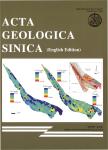Surface Processes Driving Intracontinental Basin Subsidence in the Context of India–Eurasia Collision:Evidence from Flexural Subsidence Modeling of the Cenozoic Southern Tarim Basin along the West Kunlun Foreland,NW Tibetan Plateau
作者机构:Key Laboratory of Geoscience Big Data and Deep Resources of Zhejiang ProvinceSchool of Earth SciencesZhejiang UniversityHangzhou 310027China Research Center for Structures in Oil and Gas-Bearing BasinsMinistry of EducationHangzhou 310027China Research Institute of Petroleum Exploration and DevelopmentPetroChinaBeijing 100083China Research Institute of Petroleum Exploration and DevelopmentSinopec Southwest Oil and Gas CompanyChengdu 610041China
出 版 物:《Acta Geologica Sinica(English Edition)》 (地质学报(英文版))
年 卷 期:2023年第97卷第6期
页 面:1778-1786页
核心收录:
学科分类:070904[理学-构造地质学] 0709[理学-地质学] 07[理学]
基 金:funded by the National Natural Science Foundation of China(Grant Nos.U22B6002,41972217 and 42002219) the Second Tibetan Plateau Scientific Expedition and Research of China(Grant No.2019QZKK0708)
主 题:flexural subsidence modeling India-Eurasia collision West Kunlun Tarim Basin Northwest Tibetan Plateau
摘 要:The India–Eurasia collision has produced a number of Cenozoic deep intracontinental basins,which bear important information for revealing the far-afield responses to the remote *** their significance,their subsiding mechanism remains the subject of debate,with end-member models attributing it to either orogenic or sedimentary *** this study,we conduct flexural subsidence modeling with a two-dimensional finite elastic plate model on the Hotan-Mazatagh section along the southern Tarim Basin,which defines a key region in the foreland of the West Kunlun Orogen,along the NW margin of the Tibetan *** modeling results indicate that the orogenic load of West Kunlun triggers the southern Tarim Basin to subside by up to less than ~6 km,with its impact weakening towards the basin interiors until ~230 km north from the Karakax *** sedimentary load,consisting of Cenozoic strata,forces the basin to subside by ~2 to~7 *** combination with the retreat of the proto-Paratethys Sea and the paleogeographic reorganization of the Tarim Basin,we propose that surface processes,in particular a shift from an exorheic to an endorheic drainage system associated with the consequent thick sedimentary load,played a decisive role in forming deep intracontinental basins in the context of the India-Eurasia collision.



